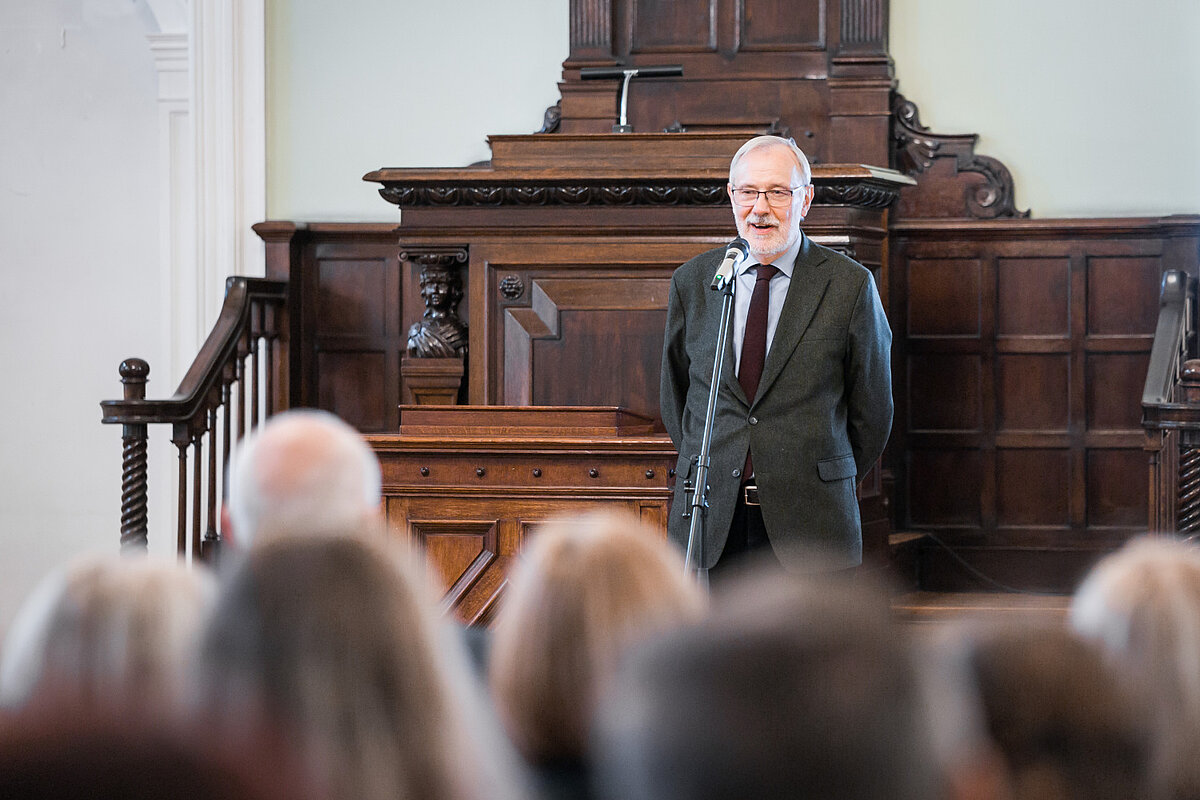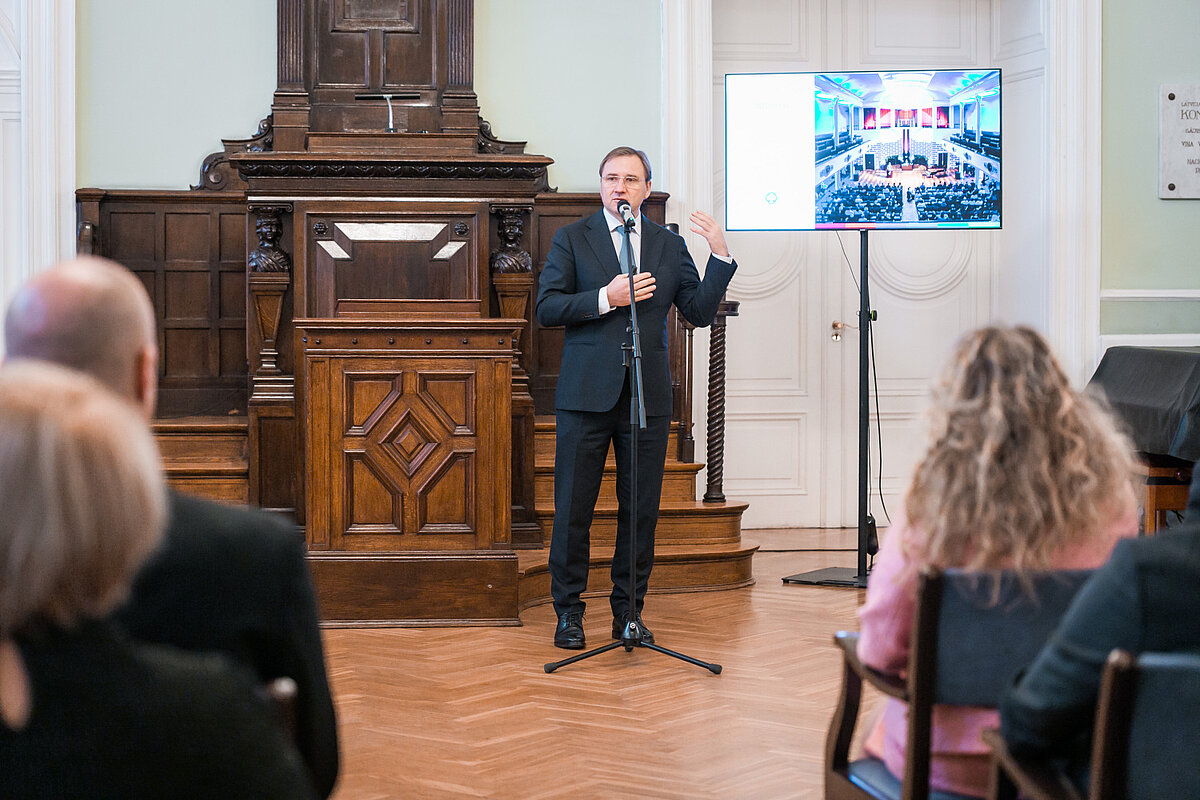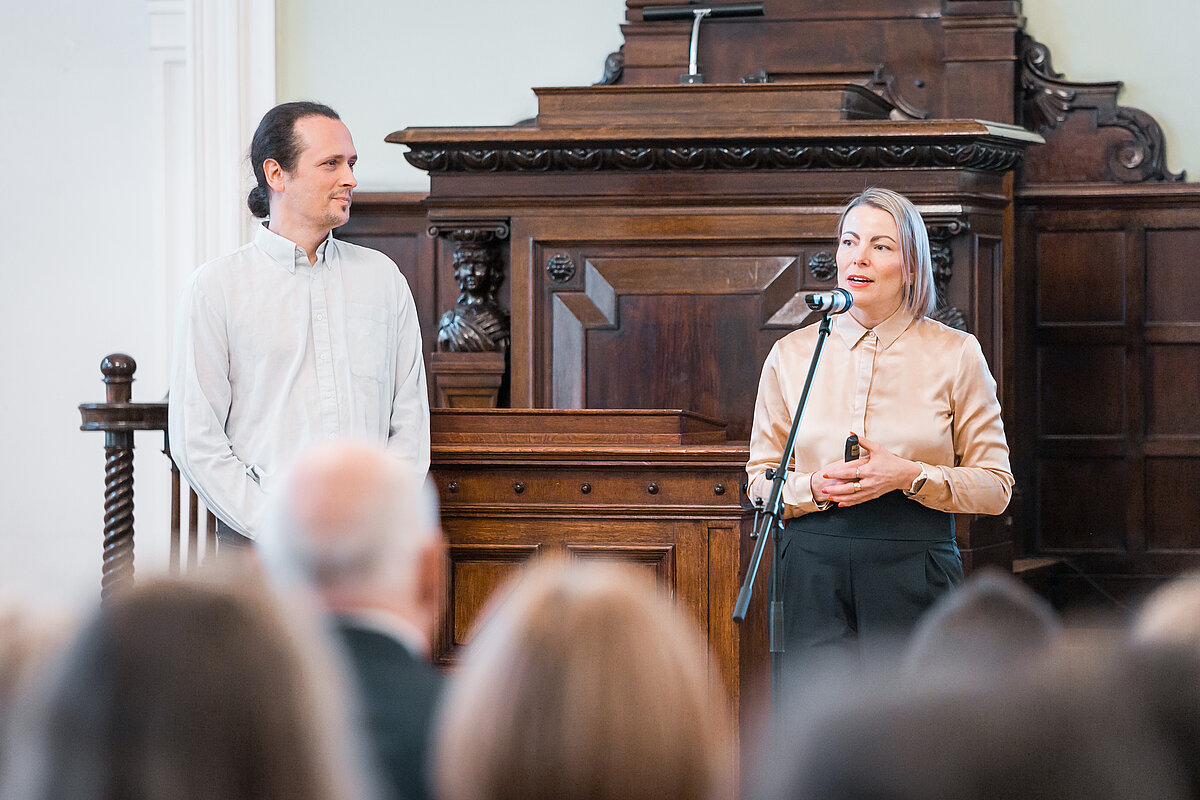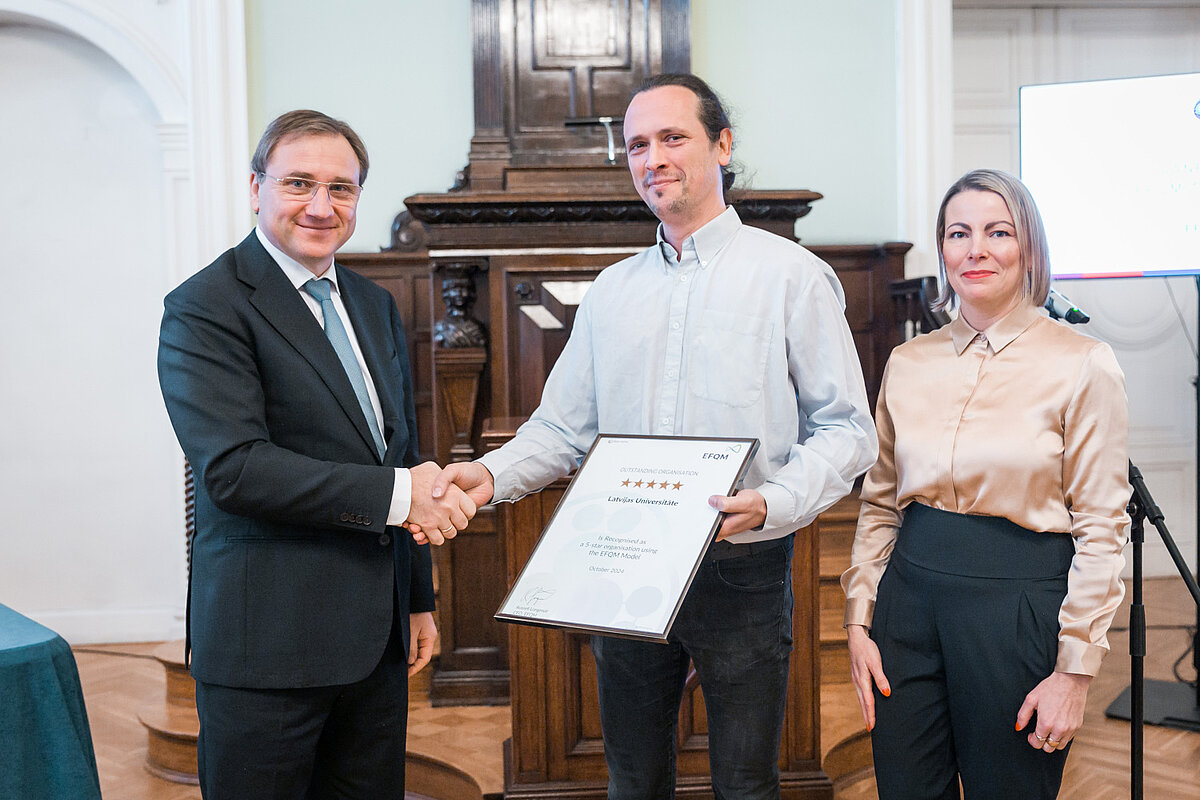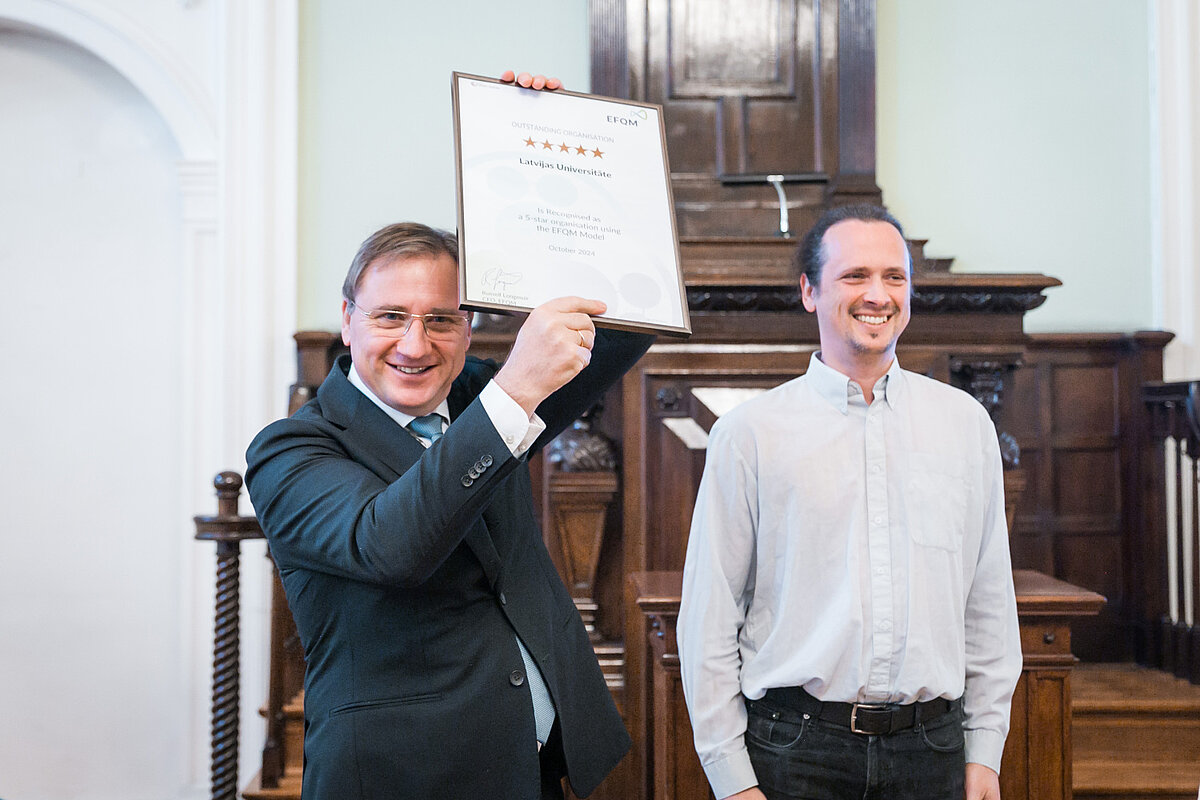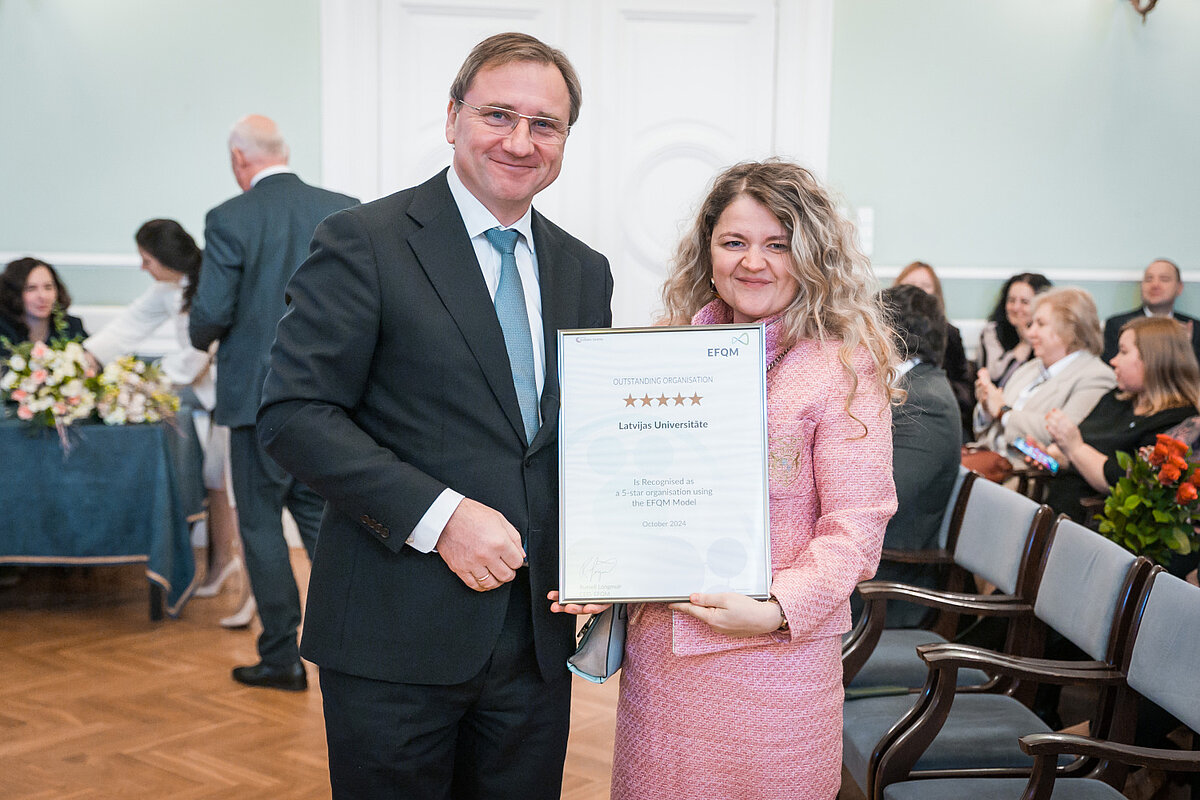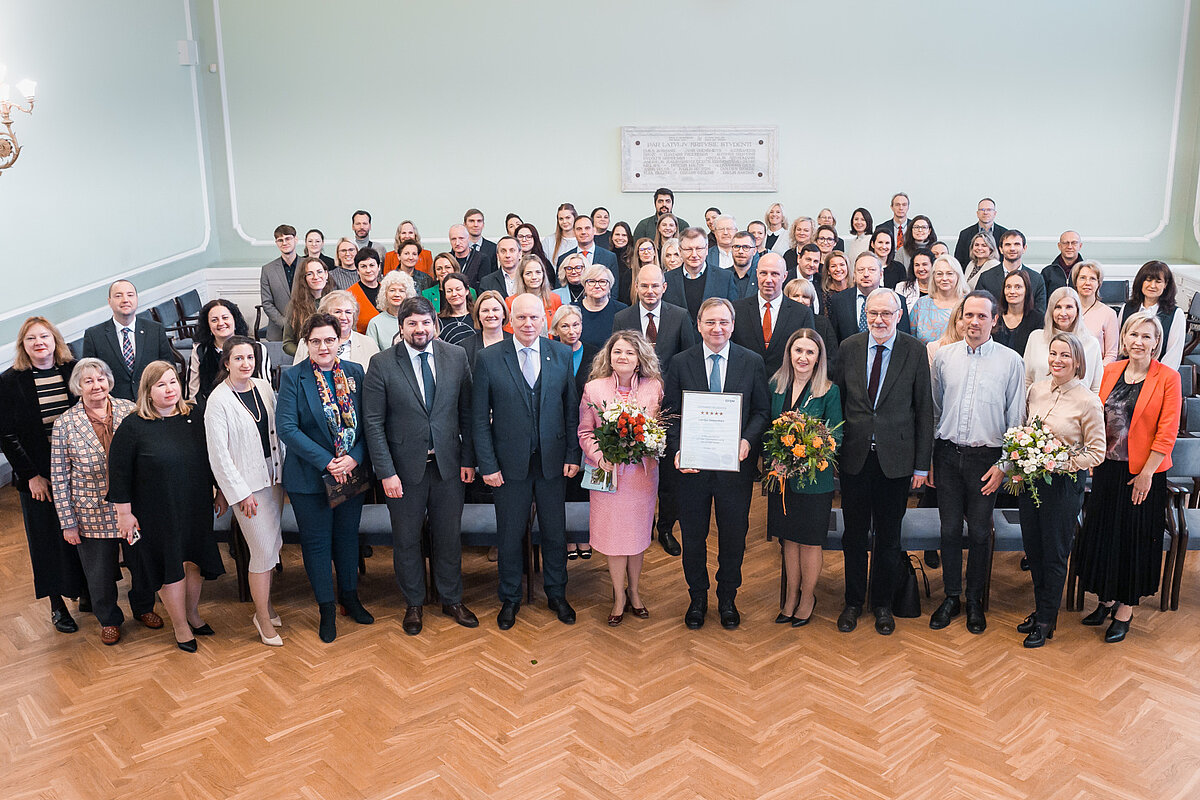The EFQM Model is a globally recognised management framework that supports organisations in managing change and improving performance. An organization can obtain the EFQM recognition level and certificate by completing an external assessment process. In Latvia, such assessments are organized by the EFQM National Partner – the Latvian Society for Quality. The team of assessors consists of international reviewers with extensive experience in the field of quality assessment. A team of international experts visited the University of Latvia in October, interviewing the University governance and more than a hundred employees for several days, inquiring about the University’s strategic goals, actions to achieve them, as well as measurement and evaluation of results.
“We are delighted with the completed work and the achieved results, which are currently the highest in the Baltics. The higher education sector is well suited for the introduction and implementation of the standards which are focused on excellence,” says UL Rector Professor Gundars Bērziņš. “We target three core operational areas: science, studies, and the third mission – cooperation with industry and society – is already being implemented through strong ties with stakeholders, thus serving as a driver for continuous improvement of our performance with a great impact on society as a whole. The excellence approach in the development of the quality management system has been applied at UL for more than ten years. The joint efforts of the UL community have enabled us to celebrate this achievement and look ahead to continuous improvement.”
According to the Latvian Society for Quality, external assessment for achieving a specific level of excellence “helps an organization understand how good its current management methods are and where improvements could be useful.” The level of recognition obtained by the University of Latvia indicates that the organization – in this case, the University of Latvia – has already fully implemented the EFQM Model and is able to demonstrate a clear connection between strategy and activities and results. “The organization measures results, analyses them and follows the trend of results. It continuously reviews its chosen approach and, if necessary, improves it,” informs the Latvian Society for Quality.
More about the EFQM excellence model – on the websites of the Latvian Society for Quality and EFQM.

 CONFERENCE
CONFERENCE
